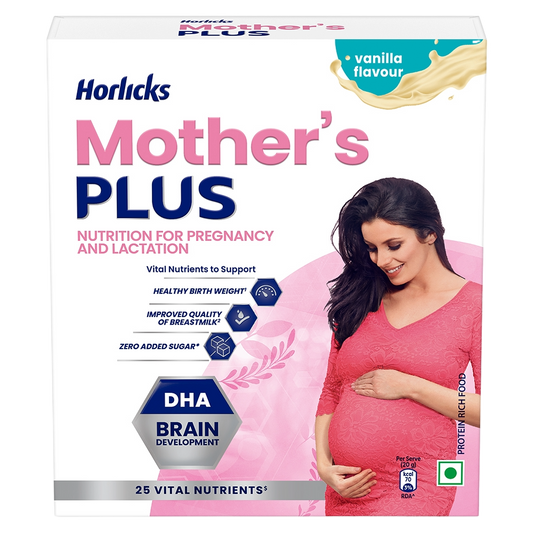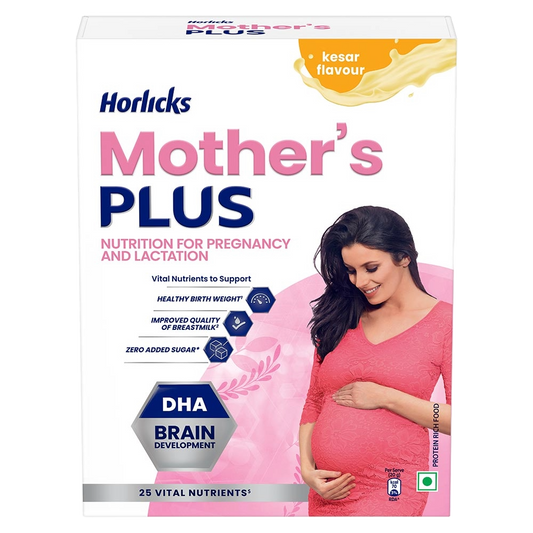When it comes to breastfeeding, proper nutritional intake and proper hydration play a vital role. You will likely need to consume about 2,500 to 2,700 calories per day depending on your activity level.5 These calories must come from healthy and nutritious sources that are good for you and the baby.
After all, it is not just the quantity of breastmilk that matters, it is the quality as well. A good way to improve the quality of breastmilk is by incorporating healthy supplements into your diet. Adding a healthy drink is strongly advisable. For instance, Horlicks Mother’s Plus provides a host of important micronutrients, including Iodine, Selenium, Vitamin A, B1, B2, B6, and B12, all of which help to improve the quality of breastmilk. This eventually ensures better nutritional benefits for the mother and baby.
Along with vital supplements, a healthy balanced diet is key. The Nutrition Society of India lays down the following recommendations for optimal nutrition while breastfeeding
- Consume an adequate amount of rice as well as coarse grains like millet.
- Do not skip edible fats like oil, ghee, or butter.
- Mix fresh leafy greens with coloured vegetables and tubers.
- Aim to consume at least 500 g of milk and milk products like yoghurt.
- Indulge in pulses and dried beans that provide good sources of protein.
- If you are a non-vegetarian, include 30 g of animal protein in your daily diet.
- Eat lots of fruit and moderate quantities of sugar or jaggery.
- Drink plenty of water and liquids to keep yourself hydrated.
At the same time, avoid smoking or consuming an excessive amount of caffeine. Both may prove to be disadvantageous in the long term and could result in serious harm if not carefully monitored.
What should you eat to breastfeed better?
When Do You Stop Breastfeeding?
The process of breastfeeding is an intimate moment between the mother and the baby. You should start breastfeeding your baby within the first hour of delivery. That will ensure that the baby gets an adequate supply of nutrient-rich colostrum. When to stop is another matter altogether. The World Health Organisation suggests that you supplement a baby’s diet with breast milk for up to two years and beyond.
However, the decision to stop breastfeeding comes from an emotional place instead of a physical standpoint. That is why health experts recommend that you stop breastfeeding only when you and the baby are both comfortable with discontinuing it. If you have any questions or clarifications, it is best to address them with your pediatrician.
The author is Neha Chandna, who is a practicing dietitian for the last 8 years. The views, opinions, and recommendations expressed in this article are solely those of the author and intended as an educational aid. Please consult your doctor for professional advice concerning specific health/medical matters.








